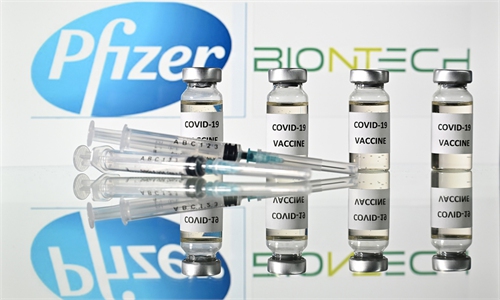Health agencies improve public vaccine approval amid nation’s second offensive against virus
Vaccination mobilization
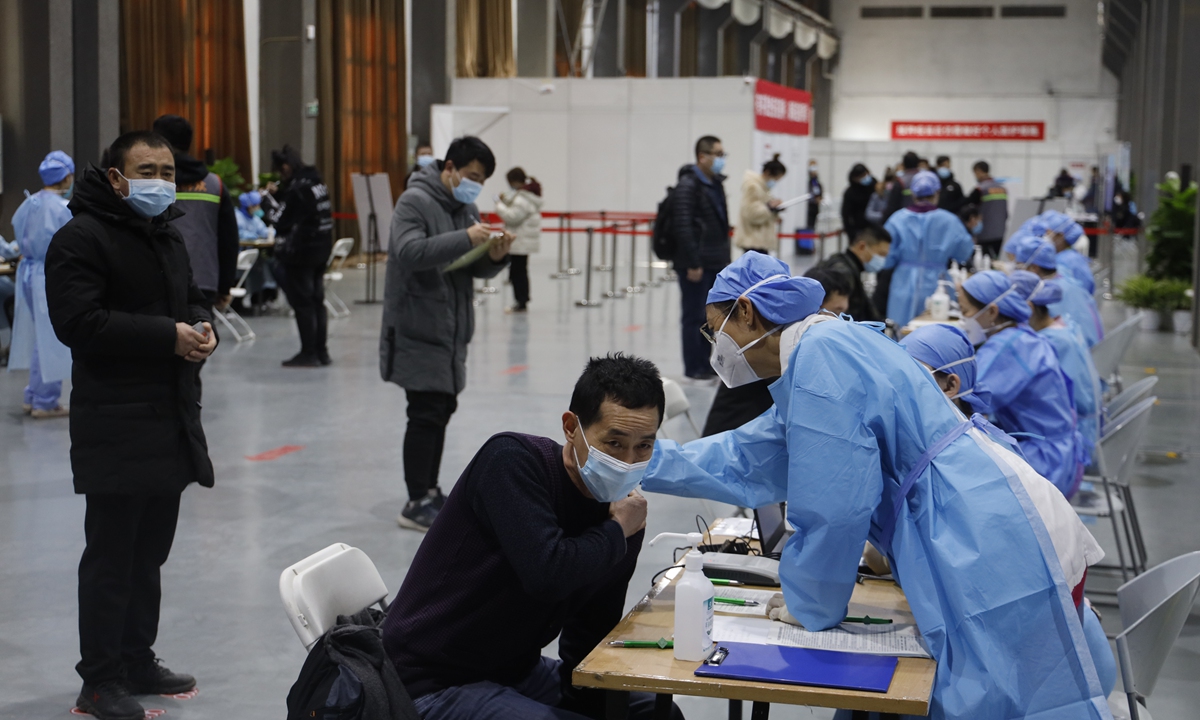
Medical workers check out people's health condition before vaccination at a temporary vaccination site in Chaoyang district, Beijing, on Monday. Photo: Li Hao/GT
With China's first domestically produced COVID-19 vaccine getting conditional approval for general use, local health systems throughout China have unveiled public vaccination campaigns starting with the high-risk groups, aiming to administer shots to millions of people before the travel rush of Spring Festival holidays.
Immunological experts called such a mass inoculation in a short period the second phase of the national offensive against the coronavirus, which requires enhanced public health communication to persuade people to take shots as early as possible in order to make it an effective remedy to prevent infections in China.
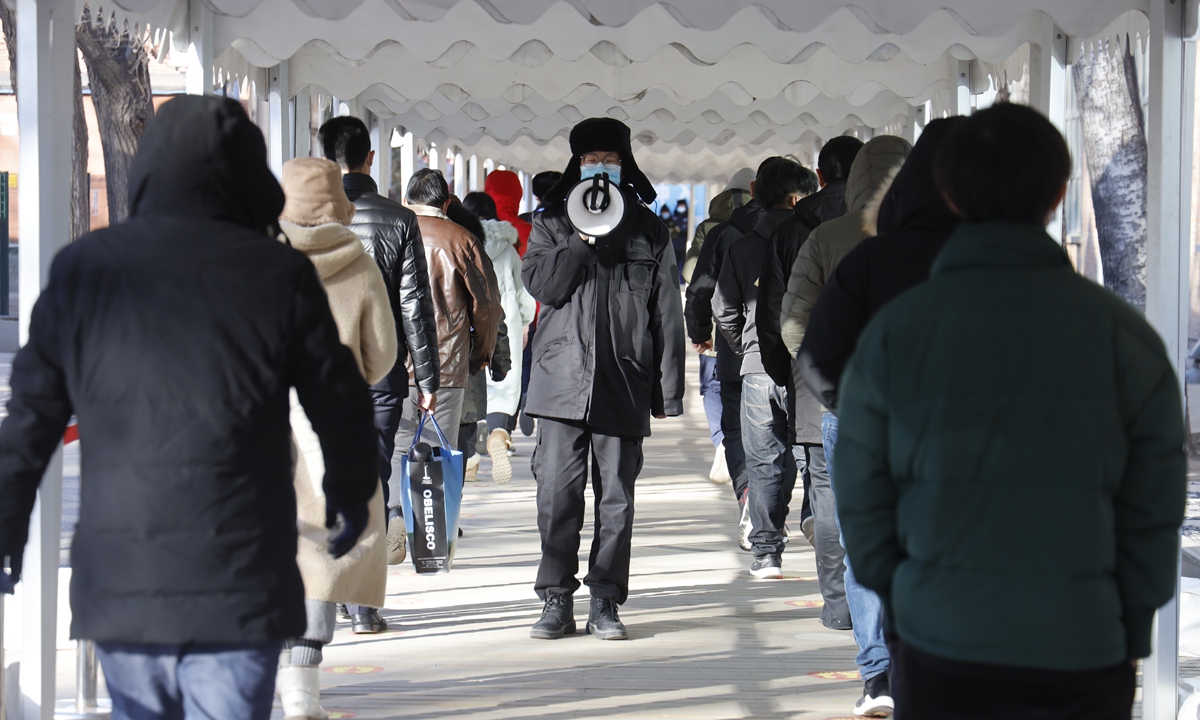
People line up according to instructions to enter the vaccination site. Photo: Li Hao/GT
Mass vaccination campaign
Multiple regions across China including capital Beijing have kicked off their first round of free mass COVID-19 vaccination amid sporadic cases in winter, setting up hundreds of temporary vaccination sites to offer doses to high-risk groups such as medical, cold-chain and port workers, to meet the target of getting 50 million people immunized against the virus before the Spring Festival travel rush, which sees world's largest human migration every year.
In preparation for the mass inoculation, the National Health Commission has formulated standards for the construction of vaccination sites, and detailed plans for vaccine storage and transportation, adverse reaction monitoring, and reporting facilities.
To improve data recording and sharing, provinces are now able to report their daily COVID-19 vaccination data and vaccine tracking statistics to the national immunization planning information system, a national health official said at an internal training session on mass vaccination on December 15, 2020.
Officials are required to ensure high-level protection of privacy during the vaccination campaign, and make the public aware of the vaccine type and validity, according to the training memo exclusively obtained by the Global Times.
More than 1.6 million doses of vaccines for emergency use have been administered nationwide by the end of 2020, with data showing a good safety record, according to the memo.
The National Health Commission is sending COVID-19 vaccination steering groups to each province for inducting personnel and inspecting the first round of mass inoculation.
In Yanqing district of Beijing, for example, the local community health service center has conducted three rounds of vaccination and first-aid training sessions, together with a mass vaccination emergency drill in accordance with the guidelines, the Global Times learned from a staff of a local health service institution.
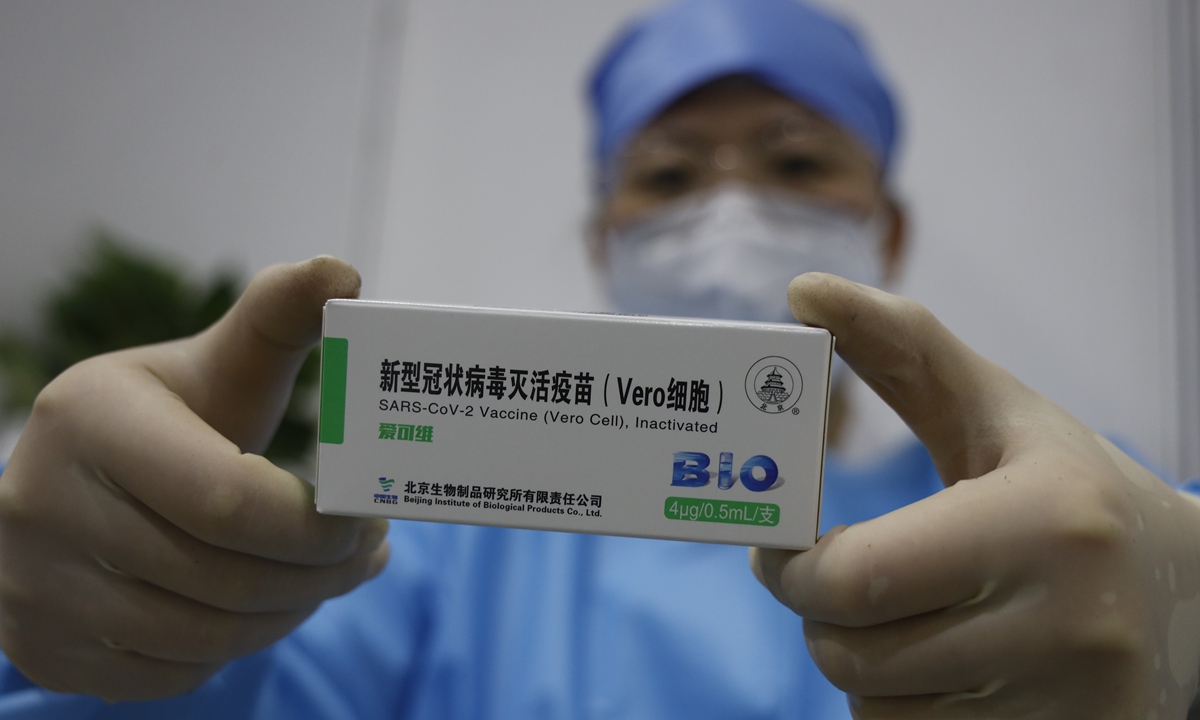
A medical worker shows the COVID-19 vaccine produced by Sinopharm. Photo: Li Hao/GT
Dealing with hesitancy
The Global Times visited the largest COVID-19 vaccination site in Beijing's Chaoyang district on Monday, and saw people lining up for their first dose of the recently approved COVID-19 vaccine developed by Sinopharm.
A young worker from the logistics industry, who was excited to get the dose, told the Global Times that most of his colleagues, especially those dealing with cold-chain food, had signed up for the vaccination voluntarily. "I have long been looking forward to getting the shot, as many of us hope we can earn more money after being vaccinated," he said.
Despite the high expectation of many people, some demonstrated hesitancy due to concerns over vaccine safety and necessity.
Research indicates that the herd immunity threshold for the novel coronavirus is about 70 percent, which means at least 75 percent of the population should be vaccinated.
Chief immunologist at the Chinese CDC Wang Qinghua said joining the mass vaccination effort is every citizen's obligation to prevent the contagious disease, which experts said is a strong signal of China's determination to reinforce its hard-won success in the virus fight.
The Chinese CDC began a probe into public vaccine acceptance as early as October, although the results are yet to be released.
A recent online survey conducted by a Shanghai-based vaccine expert, Tao Lina, in mid-December found that 25 percent of nearly 1,000 participants had hesitation and low confidence in vaccines, which experts believe can stymy inoculation efforts.
Some participants said that they felt it was not necessary to take the shots considering the virus is well-controlled in China.
A civil servant in Jiaxing, East China's Zhejiang Province, which is the first in the country to gradually roll out COVID-19 vaccines for emergency use in October, told the Global Times that the local civil service system has started to implement mandatory vaccinations.
"But some people still have concerns, such as whether the vaccine will aggravate other existing diseases, so some people cited allergies or pregnancy as excuse to avoid the vaccination," said the civil servant.
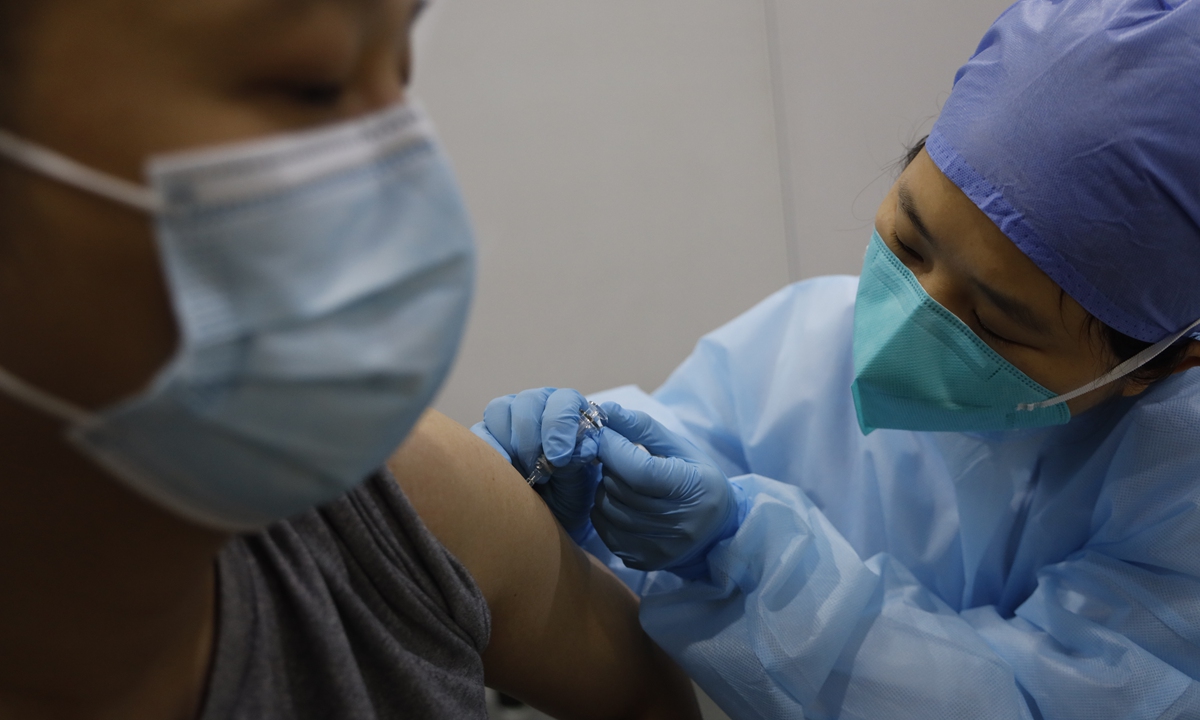
A man gets his first dose of COVID-19 vaccine in a compartment. Photo: Li Hao/GT
Experts suggested that addressing public concerns and giving clear information could encourage more people to get COVID-19 vaccines.The public should be well-informed about the advantages and potential risks of COVID-19 vaccines, and the authority can do so by using community-based campaigns and information brochures or other media channels to highlight the significance of vaccination, Tao, also a former Shanghai disease prevention and control employee, told the Global Times on Sunday. "People need to be made aware that the overall benefits of vaccination outweigh the risks for everyone, and the government should not just focus on a grand idea such as making contribution to the national herd immunity," said Tao.
Sub-regions and counties have initiated COVID-19 vaccine promotion campaigns in the local community, which experts said can boost public's acceptance of the COVID-19 vaccine.
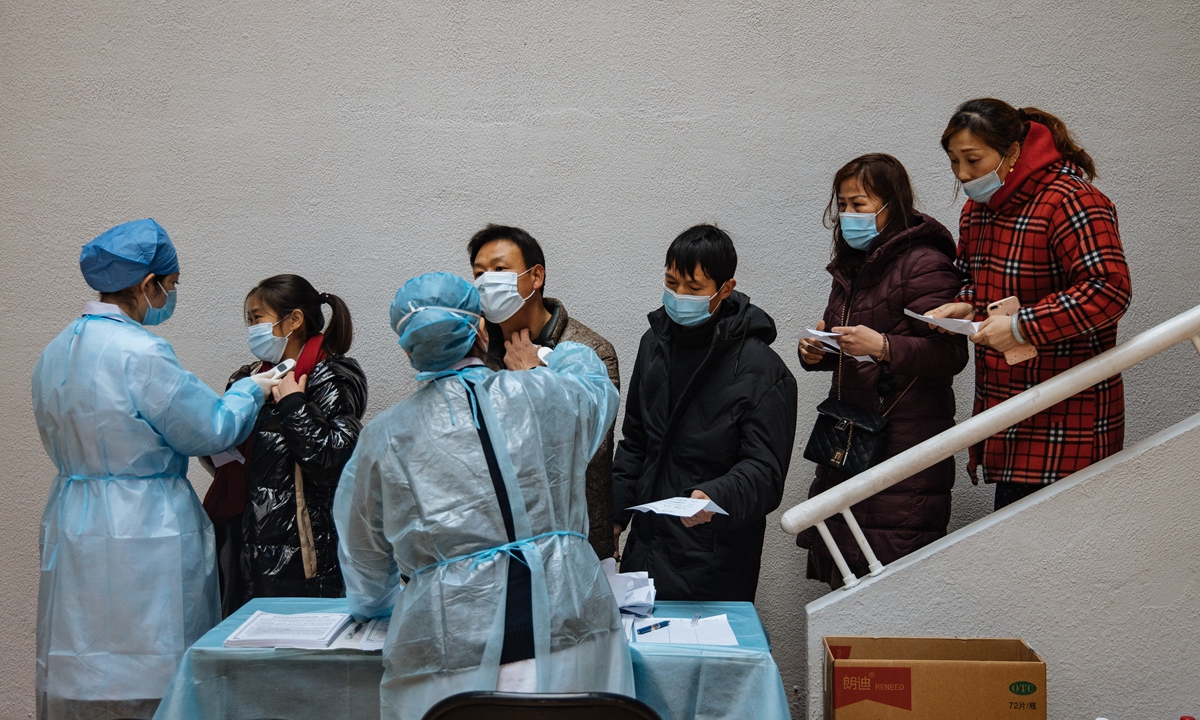
Medical workers check the temperature of people waiting for COVID-19 vaccine doses at a vaccination site in Shijingshan district of Beijing on Monday. Photo: Li Hao/GT
The government of Shizhaipu town of Central China's Henan Province has set up a special vaccine communication team to post leaflets at the entrance of the township health centers and village clinics, and inform parents of the necessity and safety of COVID-19 vaccination at school.The Shizhaipu county government has also posted banners on the main roads to encourage more residents to get vaccinated, media reported.
So far, the town has distributed more than 600 leaflets, posted more than 40 pieces of knowledge cards, and sent more than 1,000 private messages to local people amid efforts for wider inoculation.
(Zhang Yutong contributed to the report)

